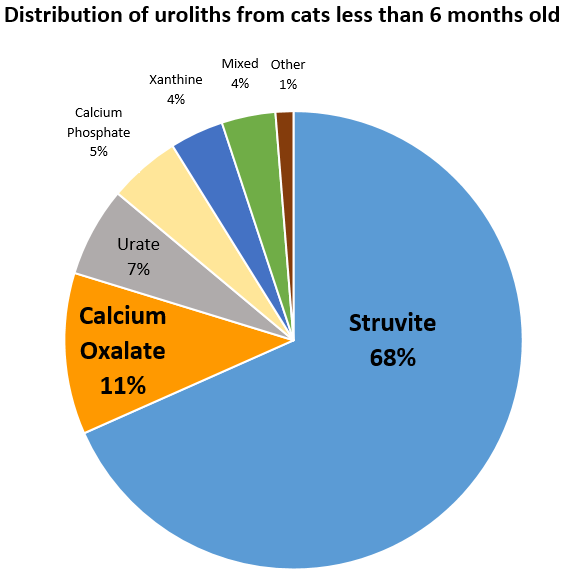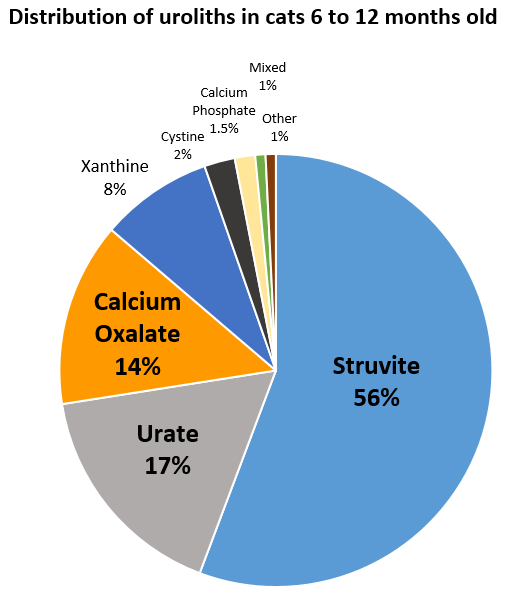Image of the month
What Types of Uroliths Form in Kittens?
In 2022, the Minnesota Urolith Center analyzed stones from over 21,000 cats, 210 (1%) submission were from cats 12 months of age or less. We separated the data into two groups, cats less than 6 months old and cats 6 to 12 months old.
In cats less than 6 months old, struvite was the most common stone (68%). Fifty-two percent were female and 48% were male. In our experience, a greater proportion of infection-induced struvite is more common in very young cats and may be associated with developmental anomalies of the urinary tract.
In cats 6 to 12 months old, struvite remained the most common stone (55%).
What was different between these two age groups? In cats less than 6 months old, calcium oxalate was the second most common stone (11%); in cats 6 to less than 12 months, urate was (17%) the second most common stone. Hepatic portovascular anomalies are an uncommon cause of urate stones in cats, but may be more common in cats less than 12-months-old.
Xanthine stones comprised 4% of stones in cats less than 6-months-old and 8% in cats 6 to 12-months-old. Since allopurinol was not administered to any cat, hereditary xanthinuria, a rare autosomal recessive disease caused by mutations in xanthine dehydrogenase (Type I) or molybdenum cofactor sulfurase (Type II) genes, was the primary consideration for xanthine urolith formation.
A diagnosis of stones in a kitten is an indication to consider urine culture, contrast-enhanced medical imaging, genetic testing or evaluation of liver function (based on predicted stone type).
Since struvite was the most common stone detected in cats less than 12 months old, a therapeutic stone-dissolving diet is indicated to quickly dissolve stones (e.g. feline c/d for two weeks followed by feline i/d because it is nutritionally complete for kittens and has S+OX SHIELD for prevention). Cats with urinary obstruction are more likely to benefit from surgical removal of stones.


Resources
Lavin L, Amore A, Shaver S. Urethral obstruction and urolithiasis associated with a patent urachus in a 12-week-old kitten. JFMS 2020 (6)
Pritchard E, Samaha G, Mizzi K, Boland L, 99Lives Consortium, Haase B. Candidate causative variant for xanthinuria in a Domestic Shorthair cat. Anim Genet. 2023;54:576-580.